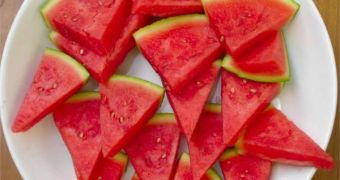Experts at the Texas AgriLife Research have recently managed to map the genome of melons, an accomplishment that translates into farmers and growers now being able to produce sweeter fruits, to be savored by the general public. While many people take into account various traits of a melon when purchasing it, such as the thickness of its shell, its shape, and the sound it makes when thumping it, it's essentially taste that makes you want to purchase one the next time you visit the supermarket.
“This will help us anchor down some of the desirable genes to develop better melon varieties. We can identify specific genes for higher sugar content, disease resistance and even drought tolerance,” explains Dr. Kevin Crosby, one of the main researchers on the new study. The science team, which also included Drs. Soon O. Park and Hye Hwang, published the details of their genetic map in the latest issue of the Journal of the American Society of Horticultural Sciences.
The delicious fruits have hundreds of DNA markers, and an accurate map of all of them has been a long time coming. Striving to improve the quality of melons is very important, as they play a large economic role, and are also a favorite dish for people around the world. They are grown in many countries, in a large number of varieties, but some of them are less sweet than others, which leads to them being left on the shelves. The Iowa State University Agricultural Marketing Resource Center estimated recently in a report that the average US citizen consumes about 25 pounds of melon each year.
Among the most important finds in the new study, the Texas research team named the identification of genes related to producing fruit sugars, ascorbic acid, or vitamin C, and male sterility. Thus, they can hope that new varieties of melons will appear in the future, which will circumvent these problems. Melons that have more vitamin content, or more sugar, could soon be created by cross-breeding specific types of existing melons, until new varieties are obtained, that fit the demand, ScienceDaily reports.

 14 DAY TRIAL //
14 DAY TRIAL //